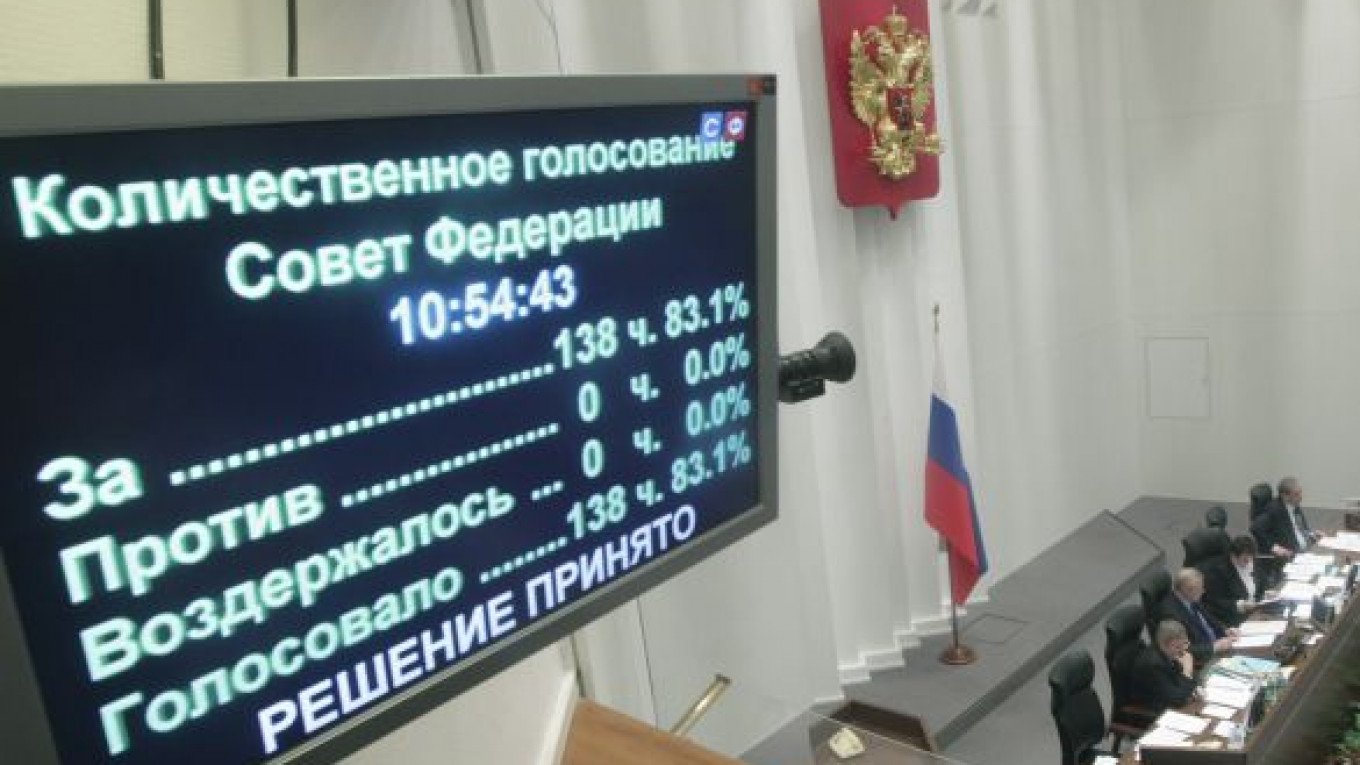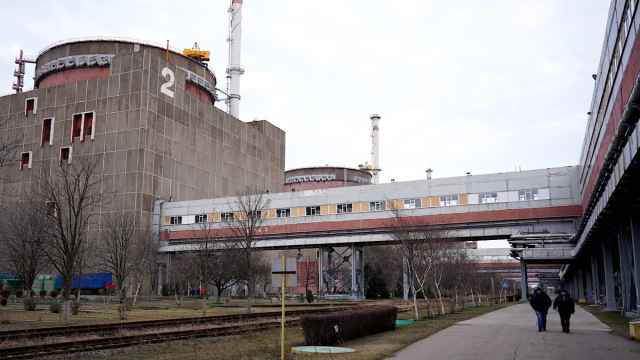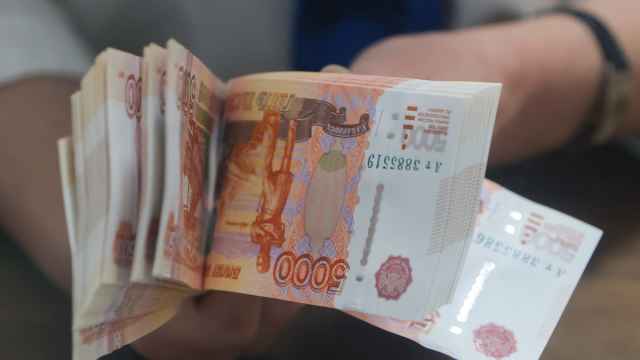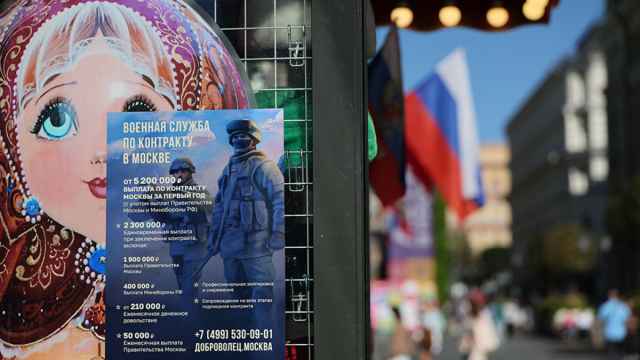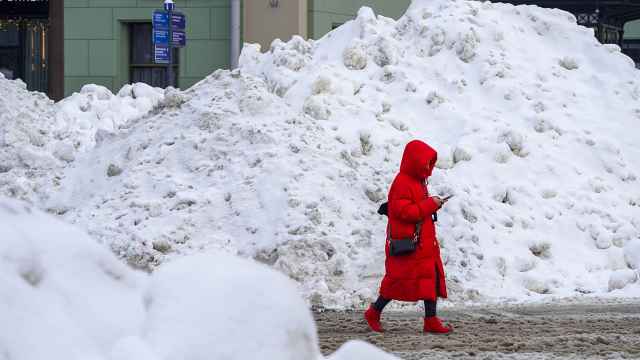The Federation Council unanimously ratified the New START nuclear arms pact with the United States on Wednesday, a day after it was passed by the State Duma.
The treaty now has to be signed by President Dmitry Medvedev and will enter force with an exchange of ratification documents by U.S. and Russian officials, expected within weeks.
The treaty limits each country to 1,550 strategic warheads, down from the current ceiling of 2,200, and also re-establishes a system for monitoring that ended in December 2009 with the expiration of a previous arms deal.
Defense Minister Anatoly Serdyukov told the upper house Wednesday that Russia was working to develop its own missile defense system, but didn't give any specifics.
Addressing concerns about Russia being forced to disarm under the treaty, he said Russia now has a significantly smaller number of missiles and bombers than the treaty allows anyway.
"The treaty doesn't constrain us in any way," Serdyukov said. "Its parameters considerably exceed our potential today."
Even after a decade of beefing up its arsenals, Russia won't reach the treaty's upper limit, he said, adding that Russia doesn't need a larger number of nuclear weapons to protect itself.
"We have a program envisaging how many missiles we will put on duty in the next decade … but even then we still won't reach the treaty's parameters," Serdyukov said.
Aging Soviet-built-missiles still form the core of Russia's nuclear forces, and the military has struggled to build their replacement. The Bulava missile, intended for the latest generation of Russia's nuclear submarines, has suffered a string of test failures and it remains unclear when it will be ready.
In Brussels, NATO Secretary-General Anders Fogh Rasmussen welcomed the ratification, saying it was "good news for international security and stability."
"It will make an important contribution to strengthening transparency, predictability and cooperation," he said in a statement. "I also hope that political momentum generated by this treaty will help [NATO] and Russia to make concrete progress in their strategic partnership, including in the field of missile defense."
NATO approved a plan for a U.S.-led missile defense in Europe last fall and invited Russia to join. Medvedev was receptive of NATO's proposal but has not made a definite commitment.
(AP, Reuters)
A Message from The Moscow Times:
Dear readers,
We are facing unprecedented challenges. Russia's Prosecutor General's Office has designated The Moscow Times as an "undesirable" organization, criminalizing our work and putting our staff at risk of prosecution. This follows our earlier unjust labeling as a "foreign agent."
These actions are direct attempts to silence independent journalism in Russia. The authorities claim our work "discredits the decisions of the Russian leadership." We see things differently: we strive to provide accurate, unbiased reporting on Russia.
We, the journalists of The Moscow Times, refuse to be silenced. But to continue our work, we need your help.
Your support, no matter how small, makes a world of difference. If you can, please support us monthly starting from just $2. It's quick to set up, and every contribution makes a significant impact.
By supporting The Moscow Times, you're defending open, independent journalism in the face of repression. Thank you for standing with us.
Remind me later.


